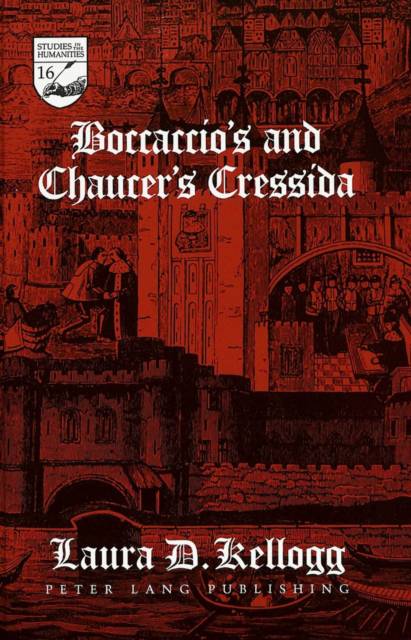
- Afhalen na 1 uur in een winkel met voorraad
- Gratis thuislevering in België vanaf € 30
- Ruim aanbod met 7 miljoen producten
- Afhalen na 1 uur in een winkel met voorraad
- Gratis thuislevering in België vanaf € 30
- Ruim aanbod met 7 miljoen producten
Zoeken
Omschrijving
During the Middle Ages, the story of Cressida's infidelity to Troilus intrigued writers, and different versions of this tale continued to be retold and reworked through the Renaissance. This study focuses on the figure of Cressida in two fourteenth century works, Boccaccio's Filostrato and Chaucer's Troilus and Criseyde, and devotes particular attention both to classical and medieval prototypes for Cressida and to each narrator's role in shaping her. The study's originality derives from its compelling demonstration of the tensions between a Cressida defined by literary history and convention and a Cressida recast through perceptually limited narrators. Offering Dido as a dynamic model for Cressida, this book provides an extensive treatment of Boccaccio's Dido.
Specificaties
Betrokkenen
- Auteur(s):
- Uitgeverij:
Inhoud
- Aantal bladzijden:
- 144
- Taal:
- Engels
- Reeks:
- Reeksnummer:
- nr. 16
Eigenschappen
- Productcode (EAN):
- 9780820425597
- Verschijningsdatum:
- 1/02/1995
- Uitvoering:
- Hardcover
- Formaat:
- Genaaid
- Afmetingen:
- 160 mm x 230 mm
- Gewicht:
- 389 g

Alleen bij Standaard Boekhandel
+ 103 punten op je klantenkaart van Standaard Boekhandel
Beoordelingen
We publiceren alleen reviews die voldoen aan de voorwaarden voor reviews. Bekijk onze voorwaarden voor reviews.







